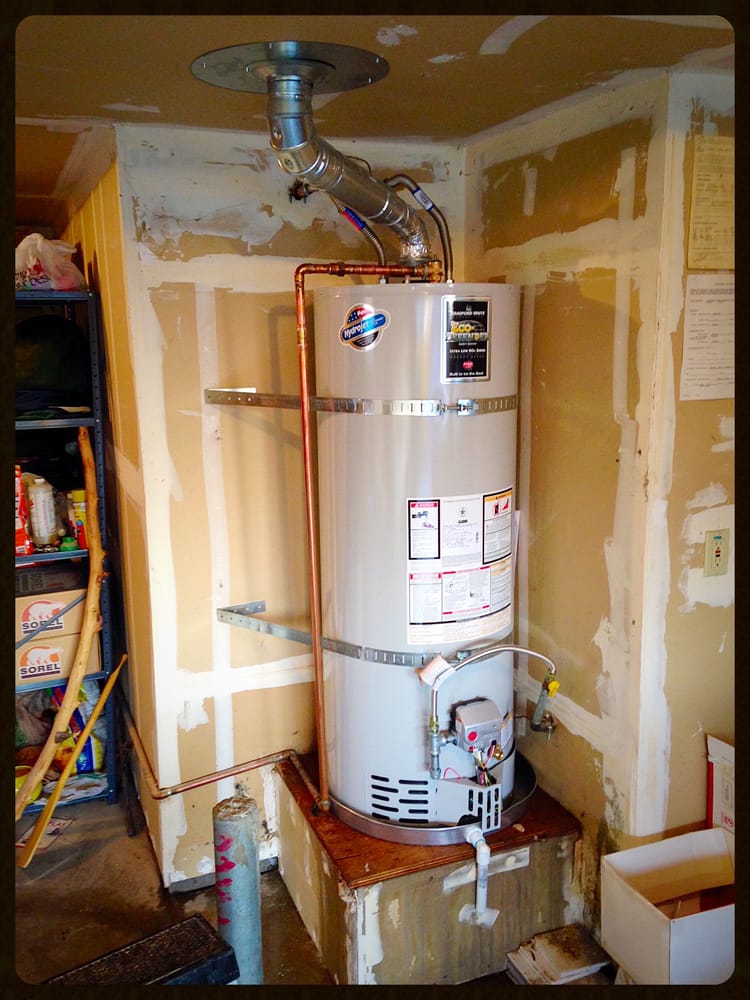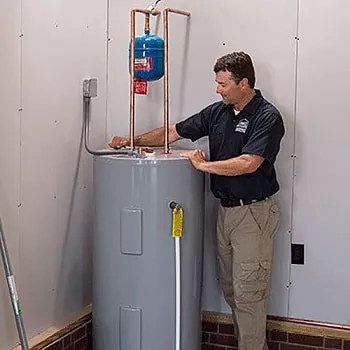Trustworthy Pipe Repair Solutions to Prevent Expensive Water Damage
Trustworthy Pipe Repair Solutions to Prevent Expensive Water Damage
Blog Article
Complete Guide to Water HeaterInstallation and Replacement
Recognizing the ins and outs of water heating system installation and replacement is critical for property owners looking for to guarantee effectiveness and integrity in their hot water supply. From choosing the ideal kind and size to performing a seamless setup procedure, numerous aspects have to be taken into consideration to avoid typical risks. This overview will offer you with the essential steps and understandings to navigate the intricacies of this home enhancement job, while also highlighting crucial upkeep methods that can extend the life of your system. As you explore these elements, you may discover on your own reassessing your current configuration and identifying locations for enhancement.
Kinds of Water Heating Systems
When taking into consideration hot water heater setup and replacement, it is vital to comprehend the different kinds of hot water heater available in the marketplace. The most common kinds consist of storage tank water heating systems, tankless water heating units, heatpump water heating systems, and solar water heating units.
Storage tank hot water heater are typical systems that keep a particular volume of warm water, making them easily offered when required. They are typically cheaper ahead of time but might incur greater energy prices with time as a result of warmth loss. In contrast, tankless hot water heater offer warm water on need, removing the need for storage. They are energy reliable and can save room, however their first costs are generally greater.
Heat pump hot water heater use electrical energy to transfer warmth from the air or ground to warmth water, providing significant energy savings but calling for more area and certain installation conditions. Last but not least, solar hot water heater harness solar power to warmth water, offering a green alternative with possible long-lasting price savings, although they often need a backup system for over cast days.
Recognizing these alternatives makes sure notified decisions concerning installation and substitute, accommodating details demands and choices.
Selecting the Right Size
Selecting the suitable size for a hot water heater is vital to make sure optimum efficiency and effectiveness. A system that is also tiny will struggle to meet home demands, bring about inconsistent warm water schedule and boosted power usage. Conversely, an oversized hot water heater can lead to unnecessary power waste and higher utility costs.
To identify the right dimension, think about the family's height warm water usage. This can be determined based on the number of occupants and their normal warm water requirements. A family of 4 might call for a water heating system with a capacity of 50 to 80 gallons, depending on the use patterns, such as synchronised showers and laundry.
Furthermore, assess the recovery price, which gauges how quickly a heating unit can restore hot water after it has been made use of. For tankless models, focus on the circulation price, measured in gallons per minute (GPM), to guarantee it fulfills the home's simultaneous need.

Installment Refine Summary

Next, the old device must be separated and gotten rid of, taking treatment to follow neighborhood codes and guidelines concerning disposal. As soon as the old system is out, the brand-new hot water heater can be positioned in position. This step entails connecting the water supply lines, making certain that all fittings are secure and leak-free.
After establishing water links, it's necessary to connect the power supply, whether electrical or gas, following the maker's instructions diligently. As soon as all connections are made, the system needs to be filled up with water, and the power can be transformed back on. Lastly, it is necessary to look for leaks and guarantee the water heater is working appropriately prior to completing the installment procedure.
Typical Installment Mistakes

One more constant blunder is overlooking to adhere to local codes and policies. Falling short to stick to these standards can not only lead to security threats yet may also result in expensive penalties or the demand for pricey reinstallation.
Failing to secure links or using the wrong kind of fittings can lead to leaks and water damage. By avoiding these usual installment errors, homeowners can ensure their water heating unit operates safely and effectively, making the most of performance and durability.
Maintenance Tips for Long Life
Appropriate upkeep of a hot water heater is vital for its longevity and optimum performance. Normal assessments and servicing can stop costly fixings and extend the device's life expectancy. you could try these out Begin by examining the temperature setup; it ought to commonly be established between 120 ° F and 140 ° F for optimum energy performance and safety.
Every 6 months, flush the storage tank to remove debris accumulation, which can harm heating performance and trigger corrosion. To do this, transform off the heating unit, attach a pipe to the drain valve, and allow the water run up until it is clear.
When they are worn away,Anode rods should be inspected each year and replaced. These poles assist prevent storage tank deterioration by drawing in harsh components this content in the water.
Additionally, inspect the stress relief shutoff frequently to guarantee it is operating correctly. This shutoff is essential for avoiding extreme stress buildup within the tank.
Finally, consider arranging an expert upkeep check every few years for comprehensive examinations and servicing. By sticking to these upkeep pointers, house owners can dramatically enhance the efficiency, safety and security, and life expectancy of their hot water heater, making sure dependable warm water for many years to come.
Final Thought
In final thought, proper installment and upkeep of water heaters are critical for making certain performance and durability. By understanding these crucial facets, homeowners can attain a trusted warm water supply while minimizing possible concerns associated to water heater procedure.
Comprehending the intricacies of water heater installment and replacement is essential for home owners looking for to ensure performance and reliability in their warm water supply.Container water heating units are conventional systems that save a particular quantity of hot water, making them readily available when required. In contrast, tankless water heating systems supply warm water on need, removing the need for storage space. Selecting a water heating system that is either too little or too big can lead to inefficiencies, resulting in insufficient warm water supply or excessive power usage.
By understanding these crucial facets, homeowners can attain a reputable warm water supply while reducing possible concerns connected to water heater operation. water heater installation.
Report this page